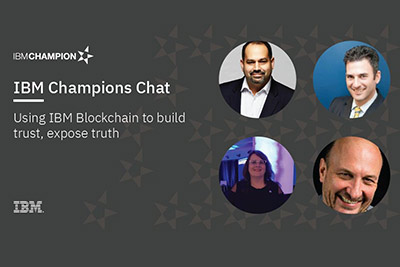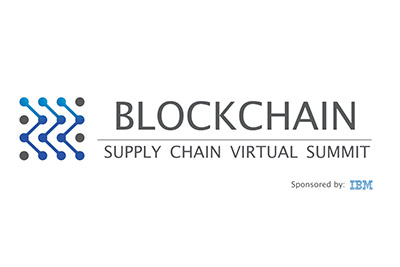 Let’s set the scene… you and your spouse are looking for a fun event to go to and you’re excited see that Pearl Jam is coming to Madison Square Garden in a few months. Tickets go on sale publicly in 15 minutes. Great timing, you thought to yourself. You both grab your personal laptops, tablets, and iPhones and get them set to the ticket home page. You know how difficult it can be to get good tickets that are in high demand. One minute before tickets are schedule to go on sale, you start refreshing your browsers, hoping to snag some decent seats at a reasonable price (the advertised price). Three minutes later, all the tickets are sold out and you, unfortunately, couldn’t snag a good seat. You do the next best thing you can do, head to a secondary website to see if they’re available there. Sure enough, there were plenty of seats available for at least double the price you saw them for on the main ticketing site. Reluctantly, you paid the extra costs on this secondary website. Does this story sound familiar? I know this personally has happened to me on numerous occasions. This brings up a few important questions: One, what happened? Two, how can we stop this from happening?
Let’s set the scene… you and your spouse are looking for a fun event to go to and you’re excited see that Pearl Jam is coming to Madison Square Garden in a few months. Tickets go on sale publicly in 15 minutes. Great timing, you thought to yourself. You both grab your personal laptops, tablets, and iPhones and get them set to the ticket home page. You know how difficult it can be to get good tickets that are in high demand. One minute before tickets are schedule to go on sale, you start refreshing your browsers, hoping to snag some decent seats at a reasonable price (the advertised price). Three minutes later, all the tickets are sold out and you, unfortunately, couldn’t snag a good seat. You do the next best thing you can do, head to a secondary website to see if they’re available there. Sure enough, there were plenty of seats available for at least double the price you saw them for on the main ticketing site. Reluctantly, you paid the extra costs on this secondary website. Does this story sound familiar? I know this personally has happened to me on numerous occasions. This brings up a few important questions: One, what happened? Two, how can we stop this from happening?
Tickets for a concert, sporting event, or coveted Broadway show are initially released in the primary market. This means that the purchaser will pay the price that the performer and venue agreed upon when the event was planned. However, automated “ticketbots” used by hi-tech scalpers have made it virtually impossible to buy tickets at their face value. These ticketbots are designed in a manner that they can purchase upwards of a few thousand tickets in a matter of seconds. Concert fans such as myself don’t stand a chance. But, I am not the only one that suffers in this scenario. The band in this story does not make any additional money after the initial purchase. The same is true with the hosting venue. Going back to my original anecdote, the consumer is paying substantially more than the price of the ticket and the only entity truly profiting from this is the ticket scalper…. not Pearl Jam, not Madison Square Garden, and certainly not the fan!
Yet, scalpers driving up the cost of the ticket is only part of the issue here. We have not yet begun to discuss the concern of fraud when buying a ticket. Duplicate tickets can be sold by nefarious characters multiple times. If you are purchasing tickets on a website such as Craigslist (or even StubHub), there is a strong possibility that the PDF you receive as your ticket has been sent to a hundred other people. The only person who will get in, is the first person to try and use that ticket. All others will be left out in the cold. There is some recourse in getting your money back, but you cannot replace that lost experience.
Thanks to the use of blockchain technology, this story looks like it can have a happy ending very soon. True Tickets (https://true-tickets.com/), a blockchain-based ticketing app, is addressing these problems head-on! Blockchain tracks a digital asset as it moves through the chain of custody. In this case, the digital asset is the concert ticket. True Tickets is a new app that is in development and will be released to the public shortly on both Apple and Samsung devices. It sits solely on an individual’s portable device and that device contains the digital wallet where the ticket will reside. Using smart contracts within the blockchain, True Tickets can make the experience better for the fan, artist, and venue (not to mention potentially more lucrative for the latter two.)
We have seen how the current process of purchasing tickets works with the Pearl Jam at MSG story. Let’s see how this scenario would differ if True Tickets was being used. For the sake of this tale, we will assume that Pearl Jam and MSG have agreed to sell tickets to their concert for a price of $50. These tickets will be released on True Tickets as the primary market for the sale, meaning this is the initial sale of the ticket. With the establishment of rules using smart contracts, the artist at this point can decided (and put a limit) on how many tickets any individual can purchase. This alone, can address the ticketbots and the mass purchase of tickets before the loyal fan has the chance to get theirs. That ticket now sits solely on the phone of the purchaser. Trends have shown that people are more and more willing to forego the paper ticket and are comfortable using their phone with a QR code as their entrance.
Now let’s assume that this person can no longer attend the concert and they would like to resell their ticket, thus creating a secondary market. The ticket was originally purchased using True Tickets and it will be resold on this same platform. The artist can decide if (and how much) the reseller can mark up the ticket. The artist and/or the venue can also agree that they will receive some sort or remuneration based on this resell. For example, the rules in the smart contract can dictate that the ticket can only be sold for a markup of 10% and the price should never go above 100% of the original ticket. I can resell my $50 ticket for $55. This resell can be done multiple times, but the ticket will never cost more than $100. Also, Pearl Jam and MSG can both agree to take $1 (or any amount for that matter) for each time the ticket is resold. This eliminates a third party making the bulk of the profit while continuing to exclude the artist and venue…. the folks that do the actual work! This entire scenario is made possible due to the use of blockchain. True Tickets also gives artists real feedback on who actually attended their show, not just who bought the original ticket. The marketing and analytics info gained here are immense.
There were several problems that we were looking to address and with the blockchain-based True Tickets app, all of these concerns are addressed. I love the idea of spending less to see the events that I want to see, or being able to spend the same, often exorbitant, amount and sitting in substantially better seats.
There are many new blockchain platforms that are very exciting and potentially market shifting. It is very interesting to learn about Maersk and their shipping, Walmart and their food trust, or UPS and their shipping consortium. But, none of these use cases help me as just a regular consumer. Buying concert tickets using cutting edge blockchain technology is something that most people can wrap their head around. The best part of it though, is that we would have no idea that we were using blockchain. We would only know that we were spending the proper amount to see an event and we would have the peace of mind to know that our ticket was real. Rock on!!
Learn more about Chateaux’s blockchains solutions: click here!








